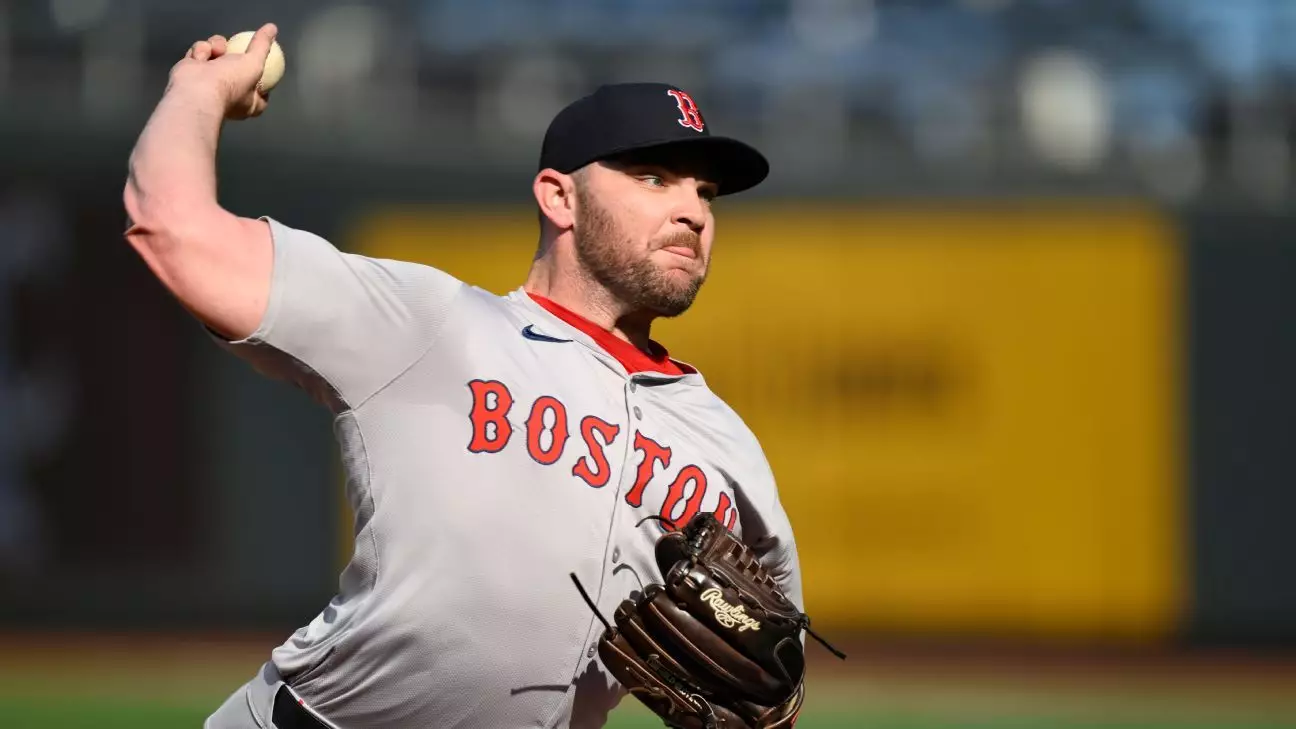In the world of professional sports, public scrutiny is an inevitable part of the game. However, as seen in the recent ordeal faced by Boston Red Sox reliever Liam Hendriks, the lines between fervent fandom and malicious aggression have become alarmingly blurred. When Hendriks took to social media to express his outrage over death threats aimed at him and his family, it served as a poignant reminder of the toxic environment that athletes often endure. Manager Alex Cora, in solidarity, articulated this inherent susceptibility, acknowledging, “We’re in the public eye, and people feel they have the right to say whatever they want.” It is a visceral reality that many athletes confront — their every move scrutinized and critiqued, often turning from passionate engagement into hostile harassment.
While every fan has the right to voice their opinion, the mounting incidents of threats against players reveal a troubling trend that cannot be ignored. It speaks to a broader societal issue of dehumanization, where athletes are no longer seen as individuals but rather as commodities whose performances define their worth. This trait culminates in an appalling expectation of perfection, leading fans to lash out when their idol fails to meet the lofty standards set for them. Hendriks’ emotional plea echoed the sentiment that has circulated among many athletes: personal threats and verbal abuse are simply unacceptable, irrespective of a player’s on-field performance.
The Role of Social Media in Promoting Toxicity
Social media has transformed the landscape of fan engagement in sports but has also fostered an environment ripe for hostility. Cora’s comments about the “burner accounts” illustrate a chilling dimension of this phenomenon. The anonymity of the digital age allows malicious voices to proliferate, leading to a reckless disregard for the well-being of others. In a time when tweets and posts can spark outrage with a single click, it’s crucial to call out the systemic issues that make such harassment possible. The escalation of toxic discourse and threats becomes a reflection of deeper societal frustrations, often driven by the anonymity that digital platforms afford.
Hendriks’ experience poses a critical challenge: how do we, as a society, honor the game without losing our moral compass? The blend of public persona and private individual raises uncomfortable questions about accountability and ethics in fandom. Cora noted, “A decision, a pitch, a play, it puts them in a bad spot,” understanding that the irrationality of fans often transcends the confines of the game itself. As social media bridges the gap between the field and the home, players bear the brunt of misguided frustrations — they are targeted not for their actions within the game but for the deep emotional investment that fans have imbued into their chosen teams.
Reclaiming Humanity in Sports
This climate of hostility must prompt serious reflection and change among both fans and the structures that govern sports. As much as sports are about competition, they must also retain their humanity. The stakes for athletes go beyond stats and wins; the implications of public judgment can have direct consequences on their mental health and family life. This reality carved out by Hendriks, Cora, and others demands an urgent call for awareness. Fans must reclaim the passion for the sport without devolving into a threatening mob mentality.
Moreover, organizations within the sports industry must step up, enacting measures that prioritize the safety of their players and staff. Establishing clear guidelines on acceptable conduct, facilitating awareness campaigns about the repercussions of online harassment, and instituting stricter penalties for abusive behavior can be pivotal in fostering a healthier fan culture. Everyone has a role to play, from fans to players to management, in ensuring that the integrity of the sport remains intact not only on the field but in the digital realm as well.
The narratives surrounding athletes like Hendriks unveil a pressing social issue that warrants our attention. As we navigate this era of heightened emotional investment in sports, we must stand firm against aggression masquerading as fandom, ensuring that all involved recognize the significance of humanity in the games we cherish.

